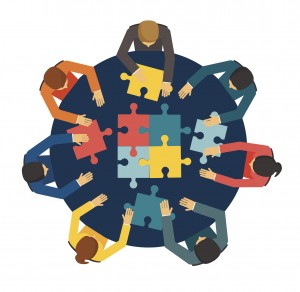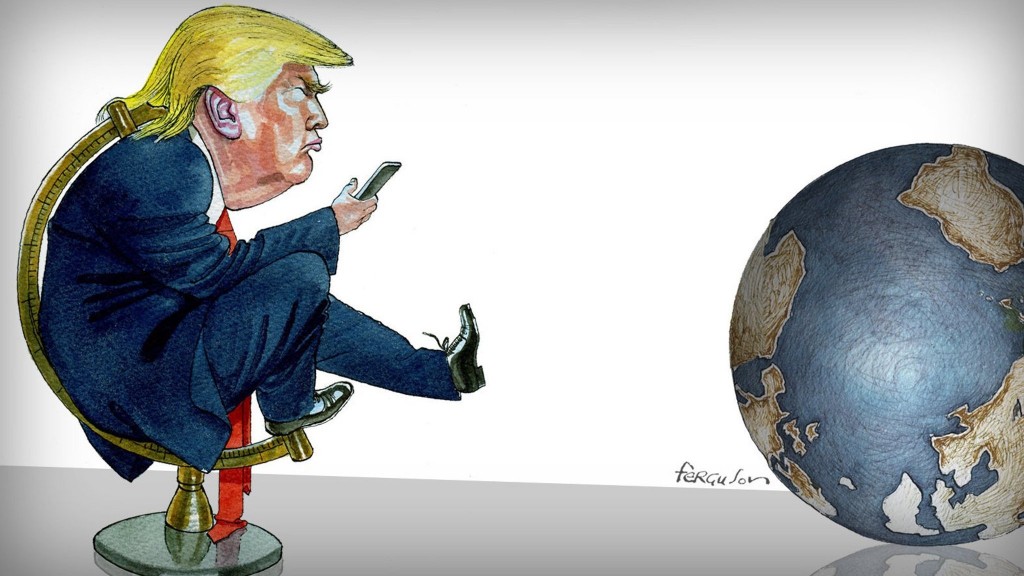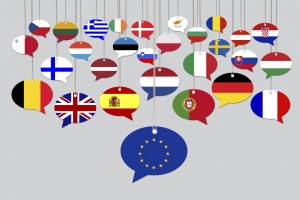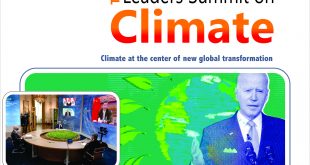Can Middle Powers Save the Liberal World Order?
Turn the expressions of concern into concerted action
Aftab Abbasi
With major powers such as China, Russia, and now also the United States, chipping away at the foundations of the liberal international order, it falls to middle powers to sustain and reform some of its key elements. While middle powers may not single-handedly be able to prevent the disintegration of the liberal international order, they can at least slow its erosion. To achieve this, middle powers need to define their priorities, assemble issue-specific coalitions with clear goals, and coordinate their efforts effectively. Existing ‘plurilateral’ initiatives offer a model for issue-specific coalitions. Some may consist solely of states, while others might also include non-governmental actors such as corporations, private foundations and advocacy networks.
At a joint press conference on 2 April, the foreign ministers of Germany and France announced that they would launch an ‘alliance for multilateralism’ that is sorely needed to ‘protect international norms, agreements and institutions when they come under pressure’ at the 74th session of the UN General Assembly that will open on will open on 17 September this year. They have, reportedly, discussed the proposal with representatives from Argentina, Australia, Canada, the EU, India, Indonesia, Japan, Mexico, Norway, South Africa, South Korea and the United Kingdom. This is, however, not the first call for mid-sized states to assume greater responsibility for sustaining the ‘liberal world order’. In December 2016, the then vice-president of the United States, Joe Biden, met with Canadian Prime Minister Justin Trudeau and delivered him a pointed message: ‘The world’s going to spend a lot of time looking to you, Mr Prime Minister, as we see more and more challenges to the liberal international order than any time since the end of World War II.” Prominent international commentators have also issued similar appeals. Gideon Rachman, a Financial Times columnist, has proposed a ‘middle-powers alliance’ to ‘preserve a world based around rules and rights, rather than power and force’. Two eminent American foreign-policy experts, Ivo Daalder and James Lindsay, have also called on US allies to ‘leverage their collective economic and military might to save the liberal world order’.
 The rationale for asking middle powers to perform this role is obvious: challenges to the international order have been mounting in recent times – and not just from a rising China and a resurgent Russia. President Trump has embraced an ‘America First’ approach that repudiates his country’s long-standing role as the leading defender and underwriter of the post-1945 multilateral system. President Trump called the EU a ‘foe’, blocked the appointment of judges to the dispute settlement panels of the World Trade Organization (WTO), withdrew from negotiations that ultimately yielded the Trans-Pacific Partnership trade agreement, pulled out of the so-called Iranian nuclear accord (the Joint Comprehensive Plan of Action – JCPOA), threatened sanctions against the International Criminal Court, and is reported to have discussed withdrawing from NATO. At the same time, China and Russia have been increasingly brazen in their defiance of international rules and norms. Russia’s invasion of Ukraine and annexation of Crimea has become a fait accompli. China has dismissed the ruling of an international arbitration court that rejected its sovereignty claim over most of the South China Sea, and has continued building and militarizing islands in contested locations. Meanwhile, respect for international humanitarian law is weakening, arms-control regimes are eroding, the multilateral trade system is under threat, and democracy and human rights are receding in many parts of the world.
The rationale for asking middle powers to perform this role is obvious: challenges to the international order have been mounting in recent times – and not just from a rising China and a resurgent Russia. President Trump has embraced an ‘America First’ approach that repudiates his country’s long-standing role as the leading defender and underwriter of the post-1945 multilateral system. President Trump called the EU a ‘foe’, blocked the appointment of judges to the dispute settlement panels of the World Trade Organization (WTO), withdrew from negotiations that ultimately yielded the Trans-Pacific Partnership trade agreement, pulled out of the so-called Iranian nuclear accord (the Joint Comprehensive Plan of Action – JCPOA), threatened sanctions against the International Criminal Court, and is reported to have discussed withdrawing from NATO. At the same time, China and Russia have been increasingly brazen in their defiance of international rules and norms. Russia’s invasion of Ukraine and annexation of Crimea has become a fait accompli. China has dismissed the ruling of an international arbitration court that rejected its sovereignty claim over most of the South China Sea, and has continued building and militarizing islands in contested locations. Meanwhile, respect for international humanitarian law is weakening, arms-control regimes are eroding, the multilateral trade system is under threat, and democracy and human rights are receding in many parts of the world.
In the face of such challenges, what can middle powers realistically do? The notion that they can ‘save the liberal world order’ seems fanciful. No system of international institutions and rules can survive for very long without the backing of its most powerful members. The challenge, moreover, is not simply to preserve key elements of the existing order, but also to reform institutions that are failing, devise new rules for emerging policy areas, and adapt the multilateral system. On the other hand, the collective influence of the middle powers should not be underestimated. Taken together, for example, Japan, Germany, the UK, France, Canada, South Korea and Australia account for more than one-fifth of the global economy. If these and other countries worked together in a concerted campaign, they might succeed in slowing the erosion of the current order, and perhaps even strengthen and modernize parts of it. It certainly seems worth trying. After all, if the world’s middle powers do not take on this task, who will?
To a certain extent, this sort of middle-powers cooperation is already under way. Multilateral efforts have been made, for example, to preserve the JCPOA and the 2015 Paris Agreement on climate change, and to address issues such as the future of the WTO or human rights abuses in Yemen. To date, however, these initiatives have been fragmented and uncoordinated. A more ambitious and concerted campaign is needed – one that defines core priorities, constructs issue-specific coalitions with clear goals, and demonstrates a level of commitment to match the seriousness of the threat.
Several mid-sized countries seem to be interested in taking further action. In addition to the Franco–German proposal for an ‘alliance for multilateralism’, in early 2019 Japanese Prime Minister Shinzo Abe expressed his country’s determination ‘to preserve and continue the free, open, and rules-based international order’. Canadian Minister of Foreign Affairs Chrystia Freeland has advocated ‘doubling down on an improved rules-based international order’. In early 2017, the then British Prime Minister Theresa May referred to ‘a new, global Britain’ that would energetically defend ‘the rules-based international system on which the stability of our world continues to rely’. The time has come to turn these aspirations into a concerted campaign.
Fortunately, models for such multilateral cooperation already exist. Informal groups of ‘like-minded’ countries have improvised solutions to global problems in many policy areas, including international migration, global health, internet governance and arms control. The label frequently applied to this style of cooperation – ‘plurilateralism’ – underscores its informality and the diversity of forms it may take. Membership in these groups tends to be issue-specific and heterogeneous, with some being comprised solely of states and others including non-governmental actors, from corporations and private foundations to advocacy networks.
Three recent examples of plurilateral cooperation are as follows:
- WTO reform
In October 2018, the Canadian government convened what it termed a ‘working group of like-minded nations’ – comprising 12 members of the WTO, including Australia, Brazil, the EU, South Korea, Singapore and Japan – to explore possible solutions to problems that threaten the organization’s future. This initiative by middle powers is known as the Ottawa Group on WTO Reform. It has initially focused on improving the functioning of the WTO’s committees, but it also aims to tackle harder issues, including the reform of the dispute settlement system. The hope is to find a formula that will persuade the US to resume the appointment of judges, at least as an interim measure.
- The Trans-Pacific Partnership
In 2015, 12 countries – Australia, Brunei, Canada, Chile, Japan, Malaysia, Mexico, New Zealand, Peru, Singapore, the US and Vietnam – concluded seven years of negotiations on a trade agreement, the Trans-Pacific Partnership, which sought to reduce tariffs and to establish common standards on intellectual property, digital commerce, labour and environment regulations, and dispute resolution, among other things. However, when US president Donald Trump signed an executive order in the first week of his presidency withdrawing the US from the pact, at Japan’s urging, the remaining 11 members revised the terms of the agreement and brought it into force. Renamed the Comprehensive and Progressive Agreement for Trans-Pacific Partnership (CPTPP), it now covers approximately 13 per cent of the global economy and 500 million people. Importantly, the countries that launched the CPTPP did so not in spite of the US, but in the hope that the US would eventually rejoin the agreement.
- Climate Change
Finally, efforts to combat climate change provide an example of plurilateral cooperation aimed at sustaining an imperilled global campaign. Shortly after taking power in January 2017, the Trump administration announced its intention to withdraw from the joint commitments agreed by the COP21, held in Paris in December 2015. Many observers had feared that the COP21 agreement would collapse, but most of its signatories instead reaffirmed their commitment. The 24th Conference of the Parties (COP24), meeting in Katowice, Poland, in December 2018, agreed on a set of common standards to measure progress on their respective greenhouse gas emissions targets. The fact that the COP21 negotiating parties have continued their cooperation towards its implementation despite the US withdrawal shows what might be achievable in other areas of policy.
The example of international cooperation on climate change also illustrates the benefits of involving subnational governments, private companies and non-governmental organizations (NGOs) in these efforts. In September 2018, Governor of California Jerry Brown hosted a Global Climate Action Summit, bringing together local leaders, state governors, business executives and NGOs from around the world. Among the 500 or so new commitments to emerge from the event, 70 major cities pledged to achieve carbon neutrality by 2050 while 488 companies, with a combined market capitalization of $10 trillion, adopted emission reduction targets for their respective operations.
Defining priorities
There is no shortage of potential initiatives for a middle-powers campaign. Some could focus on protecting or reforming existing institutions or rules; others on formulating new approaches to old problems, or devising new rules in emerging policy areas. Two of the issues discussed above – climate change and international trade – are obvious candidates for such a campaign, the first because of its impact on human livelihoods everywhere, and the second because escalating tit-for-tat protectionism could wreak ruinous effects on the global economy. There is also a need to ‘backfill’ in areas where the US has been disengaging, such as multilateral support for family planning and safe abortion (where the latter is legal). What matters most, however, is that countries that have been calling for action now take on this responsibility themselves. They need to assemble and lead issue-specific coalitions in policy areas that matter to them and their partners.
Below are three examples of possible initiatives: to modernize the international migration regime; to establish new rules for cybersecurity; and to uphold norms against state assassination, kidnapping and ‘hostage diplomacy’. Each would involve a different constellation of partners, but all would require leadership, ambition and organization.
- The migration crisis
In addition to creating humanitarian crises of unprecedented scale, mass movements of people across borders risk destabilizing governments and regions. The rise of illiberal populism in Europe can be partly attributed to a nativist reaction to the arrival in the continent of nearly two million refugees and migrants from Africa and the Middle East since 2014. Addressing these pressures requires a more concerted effort to alleviate the causes of population flows from source countries, along with a new approach to sharing responsibility for resettling refugees. The current approach is neither politically nor financially sustainable, nor does it afford refugees the protections and prospects that basic human dignity demands. A different approach is needed.
A smaller group of capable countries – along with civil society organizations and private foundations – should develop their own plurilateral initiative, focusing on specific migration source countries, displaced populations, and transit routes. More than anything else, the migration crisis is a development problem: its biggest driver is lack of economic opportunity, followed by conflict and persecution. Once established, the plurilateral coalition could also press for changes to strengthen the international refugee regime, including more reliable financing mechanisms. It could also launch a further initiative to improve the prospects for millions of children and youths living in the purgatory of protracted refugee situations.
Cybersecurity
There is an urgent need for new rules and norms in cyberspace. Digital threats to national security, critical infrastructure, domestic political systems, the global economy, and privacy are growing. In November 2018, however, 51 countries and more than 250 private organizations signed a declaration – entitled the Paris Call for Trust and Security in Cyberspace – condemning ‘malicious cyber activities’ that harm individuals or critical infrastructure. Signatories pledged to work together to prevent attacks, the theft of intellectual property, and interference in electoral processes, inter alia.
Although the Paris Call sets out important principles, the means by which these will be enforced are less clearly defined. The next, more difficult, step is to devise a mechanism for identifying violators and bringing them to justice. While the ultimate goal should be a global agreement including the world’s major cyber powers, the difficulty of reaching universal agreement suggests that the most productive approach is to build regulatory arrangements among a subset of like-minded states, and then to encourage other states to join this system. Mid-sized countries and large private corporations have an opportunity to map out the core elements of a new regime, solicit broader support, and begin enforcing whichever parts they can.
- Assassination, kidnapping and ‘hostage diplomacy’
A growing number of countries have been venturing abroad to threaten, kidnap or assassinate their adversaries and critics in recent years. Between 2001 and 2009, according to the US Senate Select Committee on Intelligence, the CIA abducted at least 119 suspected terrorists from locations around the world and transported them to secret CIA-run prisons. The attempted poisoning of a former Russian spy, Sergei Skripal, and his daughter in the UK in March 2018 is another example in this regard. Chinese security agents have also reportedly conducted kidnappings abroad. In another case provoking international outrage, in October 2018, a team of Saudi agents deployed to Istanbul murdered and dismembered a dissident journalist, Jamal Khashoggi, inside Saudi Arabia’s consulate.
Such behaviours by national governments are eroding important restraints on international conduct. Mid-sized powers can and should work together to counter this trend – by publicizing such events, coming to each other’s assistance when their citizens are targeted, and penalizing perpetrators when it is feasible to do so. The alternative is to stand aside as the rule of law gradually gives way to the law of the jungle – a world in which mid-sized countries would face even graver dangers.
Conclusion
Many middle powers have been warning of the dangers inherent in the decline of the liberal international order. Moreover, they have a clear interest in sustaining that order, since it protects them not only from systemic instability, but also from a world of unrestrained great-power politics. The time has come for these countries to translate their warnings into concerted action.
 Jahangir's World Times First Comprehensive Magazine for students/teachers of competitive exams and general readers as well.
Jahangir's World Times First Comprehensive Magazine for students/teachers of competitive exams and general readers as well.




